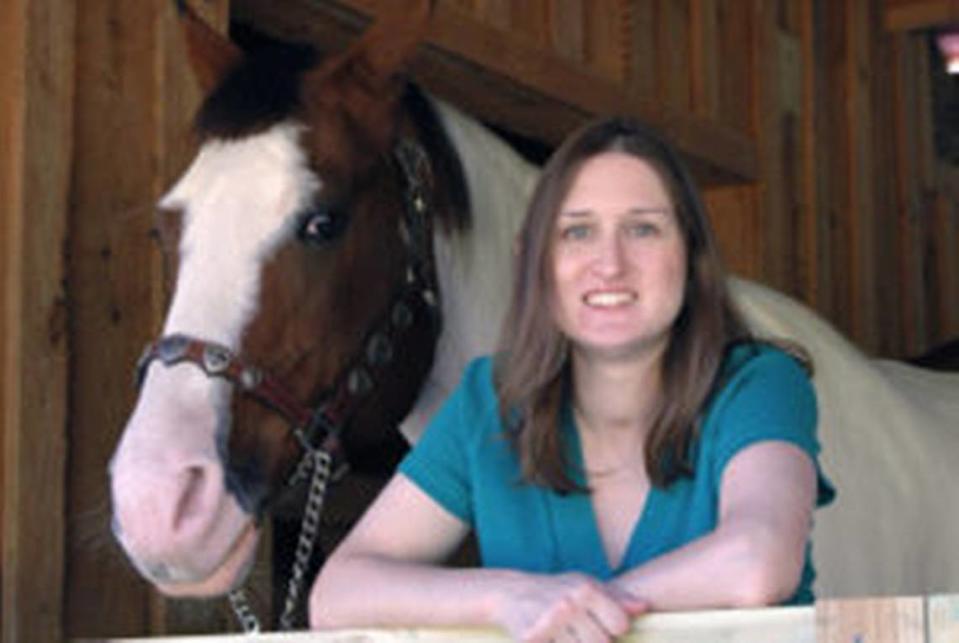COVID-19-like symptoms reported in North Carolina cats and dogs. What’s going on?
- Oops!Something went wrong.Please try again later.
- Oops!Something went wrong.Please try again later.
Dog and cat owners in North Carolina are lighting up the phone lines of their veterinarians, fearing their pets have contracted COVID-19 because of persistent coughs and other symptoms of the disease caused by the novel coronavirus, one of the state’s top animal doctors said.
But relax!
Not a single case has turned out to be COVID-19 — neither here nor anywhere else in the U.S., Dr. Jennifer Jones Shults told The Charlotte Observer.
Shults is president of the North Carolina Veterinary Medical Association and owner of Quartet Veterinary Specialty & Emergency Hospital in Cary.
Only 10 cats and two dogs worldwide have tested positive for COVID-19 since the pandemic in humans began, according to Shults. The confirmed cases in cats and dogs were in Hong Kong and Europe, she said.
“A loud, honking-type cough in your dog, 99.9 percent of the time it’s not going to be COVID,” she said.
Why not 100% of the time?
“You never want to say never,” Shults said.
Various other illnesses more likely explain your cat or dog’s persistent cough, runny nose or trouble breathing, including influenza, pneumonia, cancer and something called “kennel cough,” according to the veterinarian.
Kennel cough is most commonly caused by the bacterium Bordetella bronchiseptica m — “which is why kennel cough is often called Bordetella,” according to PetsWebMD.com.
Local kennel cough outbreaks “always exist somewhere” because the bacterium spreads so easily when cats or dogs are close together, much like the common cold and humans, Shults said.
This is why you’re more likely to see it in pets that go to kennels, dog parks or doggie day-cares.
Charlotte kennel cough outbreak
Charlotte experienced one such kennel cough outbreak this fall, prompting a well-known dog park to post a “safety update” explaining how it works with a dozen local vets on its cleaning protocols. The park, Skiptown CLT, also requires proof of updated Bordetella and other vaccines before dogs can enter its grounds.
The Bordetella vaccine “is the best defense against kennel cough,” Skiptown CLT posted on Oct. 22.
“We are also aware that local dog-friendly bars and breweries, as well as private and public dog parks, do not verify vaccines,” according to the post.
“While we can’t control what other businesses do to help protect our dog community, we can help you understand the risks associated with pups playing together in places that don’t enforce proper vaccinations,” Skiptown CLT said in the post..
Test can confirm COVID-19 in pets
Shults said she understands the concern among pet owners who fear their pets have COVID-19, given the complexities of the human pandemic.
Documented cases are rare, she said, although a COVID-19 test for dogs is available through local veterinary offices.
Some owners have bypassed local veterinarians and gone directly to Antech Diagnostics, the California-based national lab that tests dog and cat samples for COVID-19, Shults said. Antech, however, tests samples sent only from veterinary offices when it comes to people’s pets, she said.
No evidence of pet-to-human transmission
Antech likewise “has found no evidence of the virus that causes COVID-19 in people (SARS-CoV-2) in its ongoing surveillance of cat and dog samples submitted for ... analysis,” the company posted on June 2.
“Leading human and animal health organizations agree that there is currently no evidence that dogs or cats in a home environment can be a source of COVID-19 infection to other animals or to humans,” according to the post. “Antech’s data align with their conclusions.”

“There is no evidence that any animal or pet can infect humans with the new coronavirus,” stated VCA Hospitals, whose veterinary hospitals include Stoney Creek Animal Hospital on West Mallard Creek Church Road in Charlotte and Indian Land Animal Hospital in Fort Mill.
“At this time, it does not appear that dogs become sick from the virus, but some cats may become mildly ill with respiratory or gastrointestinal symptoms,” VCA Animal Hospitals added in an online post.
According to the Mayo Foundation for Medical Education and Research: “Animals don’t appear to play a significant role in spreading the virus that causes COVID-19. There is no evidence that viruses can spread to people or other animals from a pet’s skin, fur or hair.”
Shults added: “Dogs and cats are not important vectors (transmitters) for this disease. It’s a people disease.”
The few cats and dogs that have tested positive for COVID-19 in other parts of the world lived in households where people already had COVID-19, she said.
“The great thing is, coronaviruses are fairly species-specific,” she said.
After 6 1/2 looooong months closed and a week of ramping things up, Dog Bar is officially back to our normal operating...
Posted by Dog Bar on Friday, October 16, 2020

